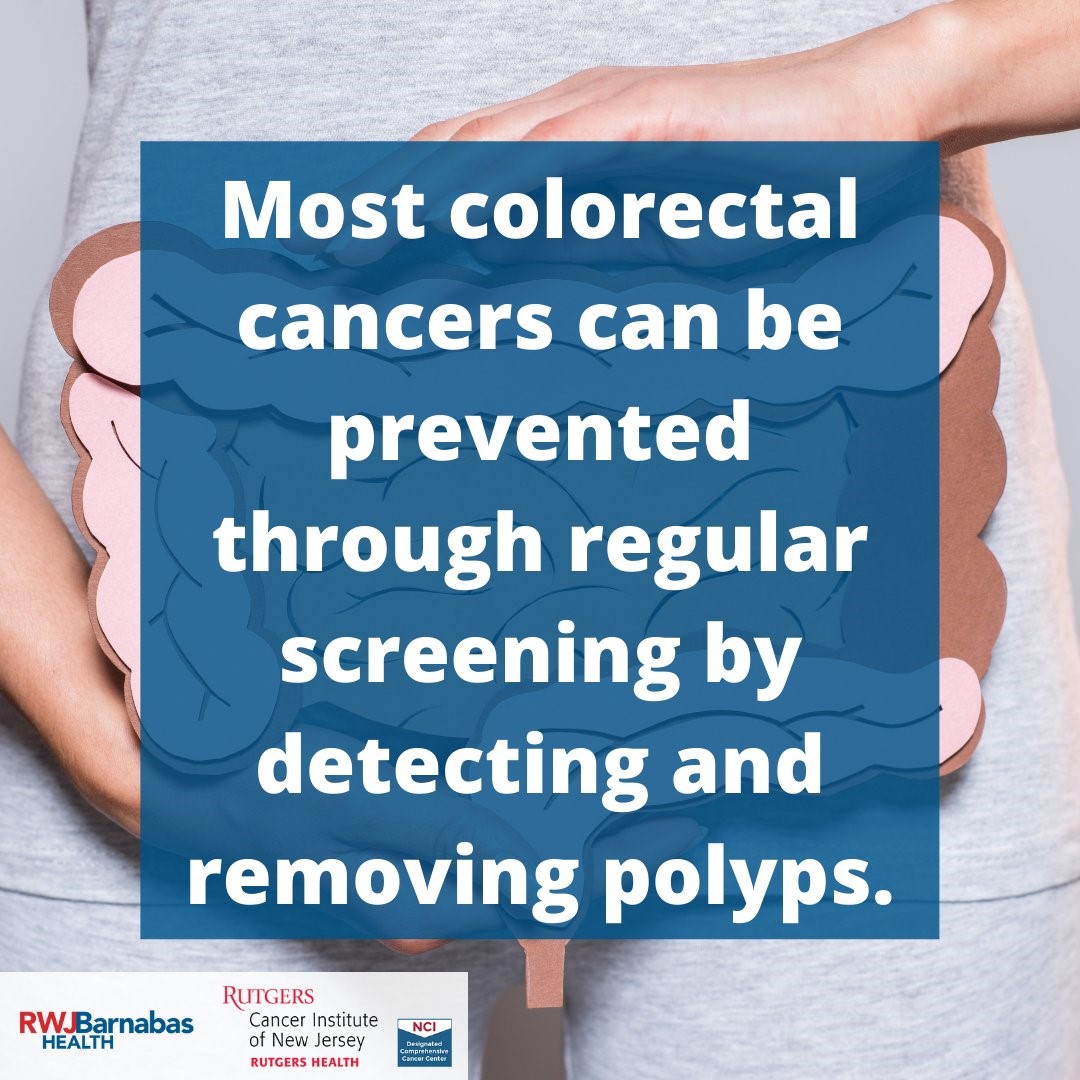 New Brunswick, N.J., March 1, 2023 – The National Cancer Institute’s latest Cancer Trends Progress Report shows that over the past decade, the overall rate of screening for colorectal cancer in the United States has slowly increased. Compared with non-Hispanic whites, screening rates have improved but still lag among Black Americans. These disparities may result in part by limited access to screening or lack of access to treatment or resources. Anita Kinney, PhD, RN, FAAN, FABMR, director of the Cancer Health Equity Center of Excellence at Rutgers Cancer Institute of New Jersey, the state’s leading cancer program and Rutgers School of Public Health, shares what this community needs to know and where to find colorectal cancer screening information and resources.
New Brunswick, N.J., March 1, 2023 – The National Cancer Institute’s latest Cancer Trends Progress Report shows that over the past decade, the overall rate of screening for colorectal cancer in the United States has slowly increased. Compared with non-Hispanic whites, screening rates have improved but still lag among Black Americans. These disparities may result in part by limited access to screening or lack of access to treatment or resources. Anita Kinney, PhD, RN, FAAN, FABMR, director of the Cancer Health Equity Center of Excellence at Rutgers Cancer Institute of New Jersey, the state’s leading cancer program and Rutgers School of Public Health, shares what this community needs to know and where to find colorectal cancer screening information and resources.
What you should know: According to theAmerican Cancer Society 2022-2024 Cancer Facts and Figures for African American/Black People:
- Colorectal cancer is the third most common cancer in Black men and women
- Black people have the second-highest incidence of colorectal cancer in the US. Incidence rates are about 20 percent higher in Black people than in white people among both men and women
- Recent research suggests that the Black-white screening disparity has increased in recent years as rates continue to improve in White people
Why is screening so important? Screening saves lives. Most colorectal cancers can be prevented through regular screening through detection and removal of polyps. It is recommended that colorectal cancer screening for men and women begin at age 45.
Resources at your Fingertips:
- ScreenNJ was developed under the leadership of Rutgers Cancer Institute in partnership with the New Jersey Department of Health. This resource can be utilized to find local colorectal cancer screening programs, information about the types of testing and benefits, and free statewide community navigation regardless of insurance status or health system affiliation. To contact a ScreenNJ Community Navigator click here.
- Visit our Colorectal Cancer Resource Center to learn more about screening guidelines and read blogs from our experts
- Schedule a colorectal cancer screening with RWJBarnabas Health here.
How can we break barriers to screening? While there is no single solution to resolving colorectal cancer disparities, greater access to screening services can result in better health outcomes. By continuing to raise awareness about colorectal cancer and minority health disparities, communities, organizations and health professionals can take action toward prevention and early detection. Researchers at Rutgers Cancer Institute and the Cancer Health Equity Center of Excellence in partnership with the Rutgers School of Public Health, address cancer health disparities through research and program initiatives in alignment with RWJBarnabas Health aim to improve the health of the diverse communities in the state.
Dr. Kinney is also the associate director for Population Science and Community Outreach and Engagement at Rutgers Cancer Institute, a professor of Biostatistics and Epidemiology at Rutgers School of Public Health and director of ScreenNJ,
Rutgers Cancer Institute together with RWJBarnabas Health, the state’s only National Cancer Institute (NCI)-Designated Comprehensive Cancer Center, a statewide resource in advancing our understanding about colorectal cancer.
###
For journalists – contact:
Krista Didzbalis
Media Relations Assistant
732-507-8307
krista.didzbalis@rutgers.edu
For patient appointments/inquiries – contact:
844-CANCERNJ (844-226-2376)

